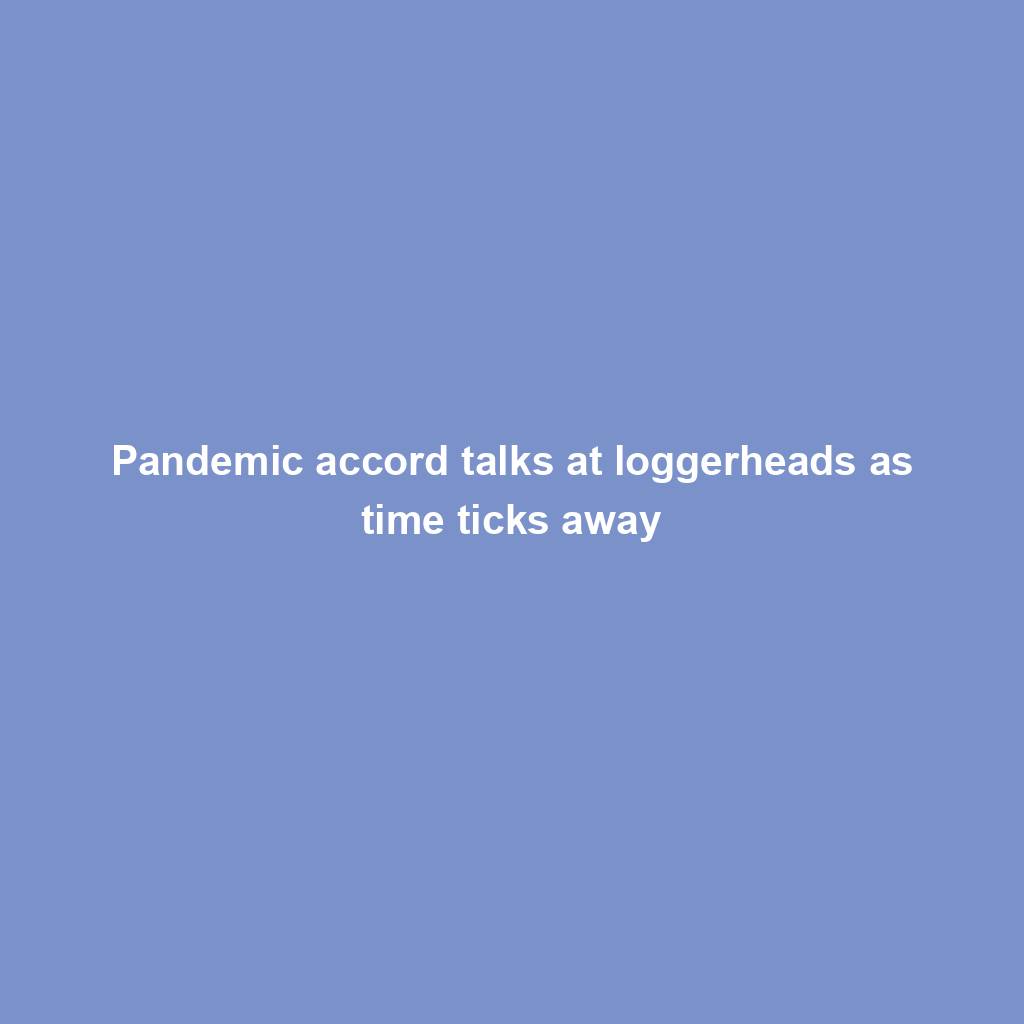GENEVA: The ultimate spherical of talks on a landmark pandemic accord faces a frantic final push this week, with international locations nonetheless pulling in numerous instructions on how you can deal with future world well being crises.The final week of negotiations runs till Thursday with nations attempting to hammer out an settlement to verify the world is best ready to cope with the following pandemic — or higher nonetheless, stamp it out earlier than it even occurs. Shaken by Covid-19, which shredded economies, overturned societies, crippled well being programs and killed hundreds of thousands, international locations determined in December 2021 to construct a framework of binding commitments to cease such trauma from ever taking place once more.However as two years of talks come to the crunch, main sticking factors stay over how far international locations are ready to go.The ninth and last negotiations spherical opened on March 18, with day by day talks ploughing on late into the night.Sealing a deal will contain some severe horse-trading — however the breakthrough second stays elusive. Diplomats insist they continue to be eager to conclude an settlement, however the varied alliances nonetheless appear far aside.World Well being Group chief Tedros Adhanom Ghebreyesus has repeatedly warned nations that “everyone will have to give something, or no one will get anything.”- ‘Vital for humanity’ -European international locations — who led requires a pandemic treaty — need more cash invested in pandemic prevention, whereas African nations need the information and financing to make that work, plus correct entry to pandemic “counter-measures” like vaccines and coverings.The USA needs to make sure all international locations share information and samples from rising outbreaks rapidly and transparently, whereas creating international locations are holding out agency for assured fairness to cease them getting left behind.Based on the roadmap, a finalised accord on pandemic preparedness, prevention and response can be adopted on the Could 27 to June 1 World Well being Meeting of the WHO’s 194 member states.However there’s a sense in diplomatic circles that creating nations are rising weary of Western obduracy and further negotiations in April could also be wanted to cross the road.”We all know there remain critical areas where you are yet to reach consensus,” Tedros informed the ultimate negotiations spherical.”You agree on what you are trying to achieve… now you need to agree on how to achieve these objectives.”It’s mission-critical for humanity that you just do,” he warned. “We can not enable the cycle of panic and neglect to repeat.”- No time to ‘chicken out’ -The main topics still in play include access to emerging pathogens, better prevention and monitoring of disease outbreaks, reliable financing and transferring technology to poorer countries.The talks are being conducted by an Intergovernmental Negotiating Body co-chaired by Roland Driece of the Netherlands and South Africa’s Precious Matsoso.Opening the final talks round, Driece said many countries now thought reaching agreement would be “tough”, and the draft was “probably not what we like”.”You all stated it”, but “that is the way it works… It is time to discover compromises,” he explained.Matsoso put it succinctly: “You may’t hen out now.”Success or failure in the next pandemic may heavily depend on the pharmaceutical industry coming up with the necessary vaccines, tests and treatments — and crucially, how they are then distributed.Thomas Cueni, director general of the International Federation of Pharmaceutical Manufacturers and Associations industry body, said any accord would be “meaningless” if companies were being strongarmed.”It solely works if it is voluntary and based mostly on mutually-agreed phrases,” he told AFP.The IFPMA chief said there had been unprecedented voluntary tech transfer during Covid, and “if that is created the mistaken means, I am afraid that this might put massive boundaries and disincentives subsequent time spherical”.- ‘Lowest common denominator’ -Non-governmental organisations have major concerns over the way the agreement text is heading.KM Gopakumar, senior researcher with the Third World Network, surmised that in return for binding commitments on sharing pathogens, developing countries wanted equally-binding proposals “to share the advantages rising out of those pathogens: vaccines, diagnostics”.He said there had been “systematic sidelining of equity-related provisions within the pandemic instrument”.He said phrases like “events shall promote” mean that “nothing is concrete”. Rachael Crockett from the Drugs for Neglected Diseases initiative said there was a risk of a rushed deal that “might depart us with the bottom frequent denominator”.Ultimately, senior WHO figures have been trying to remind countries why nations wanted a treaty in the first place. WHO emergencies director Michael Ryan said the accord would be a promise to future generations.”The result actually issues,” he said Thursday.”This is not some dusty previous doc that may sit on a shelf someplace. This treaty will save lives.”
#Pandemic #accord #talks #loggerheads #time #ticks
For more information, check out these articles:
